Maximize Efficiency: The Ultimate Guide to Choosing the Right Workshop Benches for Heavy-Duty Projects
In the realm of heavy-duty projects, the selection of appropriate workshop benches is paramount to maximizing efficiency and productivity. According to the "2022 Workshop Equipment Market Report," a staggering 68% of professionals in industrial sectors cite that having the right workbench setup significantly enhances their operational workflows and reduces downtime. Furthermore, the report highlights that a well-designed workshop environment can increase workers’ output by up to 30%, thereby underscoring the critical impact of choosing suitable workshop benches. With a plethora of options available, ranging from adjustable models to those designed for specific tasks, understanding the nuances of these workspaces becomes essential.
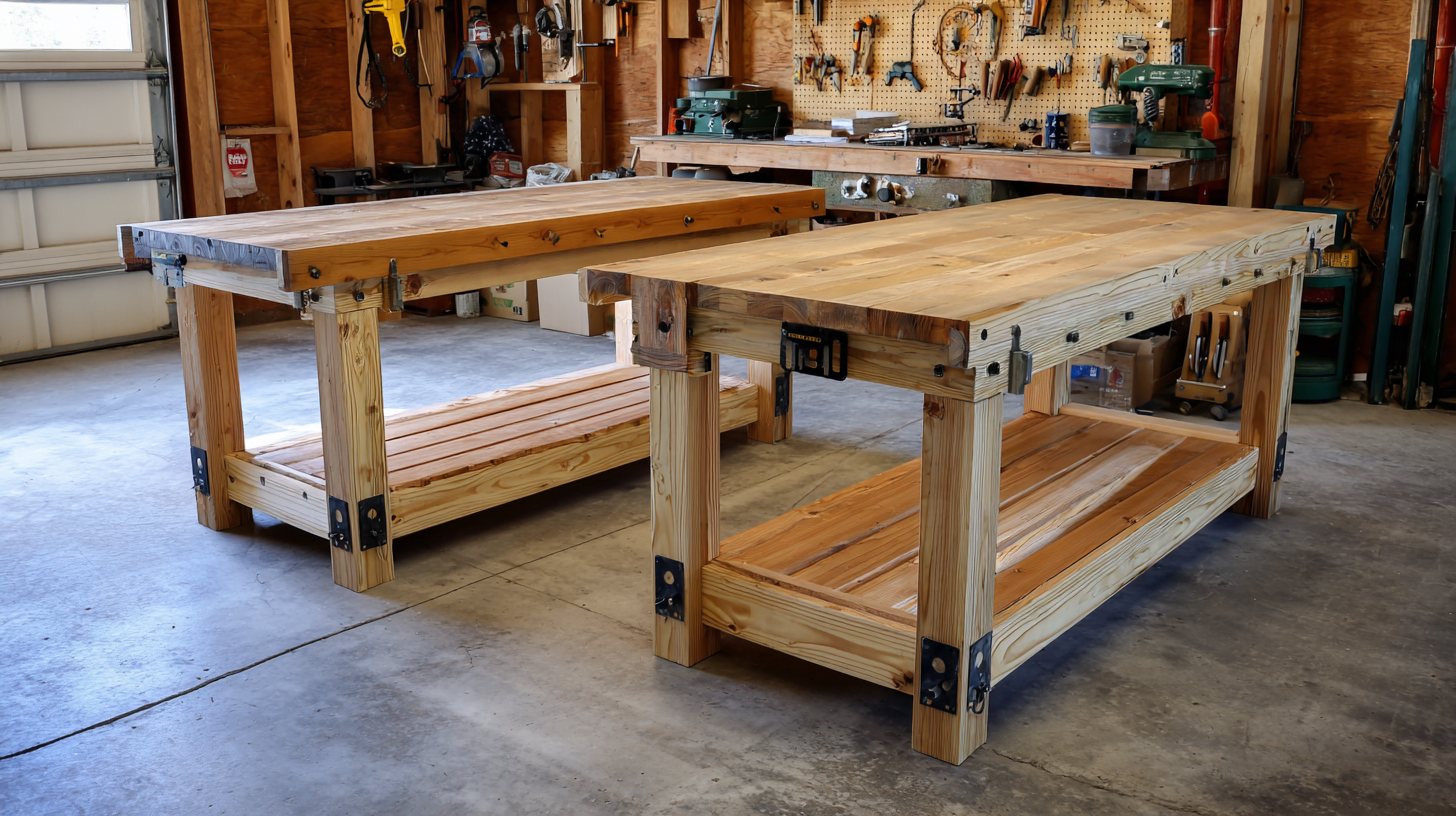
This guide aims to equip professionals with the insights needed to select workshop benches that not only accommodate heavy-duty projects but also foster an efficient and safe working atmosphere.
The Key Features to Look for in Heavy-Duty Workshop Benches
When selecting the right workshop bench for heavy-duty projects, it's essential to consider several key features that ensure efficiency and durability. A sturdy work surface is paramount; look for benches made from high-quality materials like hardwood or steel that can withstand substantial weight and pressure. An ideal workbench should also offer ample surface area for your tools and materials, allowing for better organization and productivity during your DIY endeavors.
**Tips:** Ensure that your workbench includes built-in storage or options for tool organization. This feature can significantly reduce clutter, letting you focus on your projects. Additionally, consider the height of the bench—comfort is key, and choosing an adjustable height option can cater to various tasks and user preferences, making your work experience far more enjoyable.
Another crucial aspect to remember is the structure's stability and mobility. Heavy-duty projects often require a bench that can endure rigorous use without wobbling. Some workbenches come with features like lockable wheels for easy transport without sacrificing stability. According to industry data, workbenches that combine rugged construction with portability can significantly enhance the overall efficiency of your workshop, providing both the strength needed for tough tasks and the flexibility to adapt to different project spaces.
Maximize Efficiency: The Ultimate Guide to Choosing the Right Workshop Benches for Heavy-Duty Projects
| Feature | Description | Importance Level |
|---|---|---|
| Load Capacity | Ability to support heavy tools and materials, usually measured in pounds. | High |
| Material | Material composition affects durability and resistance; common materials include hardwood, metal, or composite. | High |
| Surface Area | The total workspace available for tools and projects; larger surface areas allow for more complex projects. | Medium |
| Adjustability | Features that allow modification of height and configuration for comfort and usability. | Medium |
| Storage Options | Drawers, shelves, or bins for organizing tools and materials. | Medium |
| Mobility | Wheels or other features that allow for easy movement when necessary. | Low |
| Finish | The treatment of surfaces (like varnish or sealant) that affects durability and aesthetics. | Medium |
Top 5 Materials for Durable Workbenches and Their Benefits
When choosing a workshop bench for heavy-duty projects, selecting the right materials is crucial to ensure durability and efficiency. The top five materials for workbenches include hardwood, metal, plywood, composite materials, and laminate, each offering unique advantages.
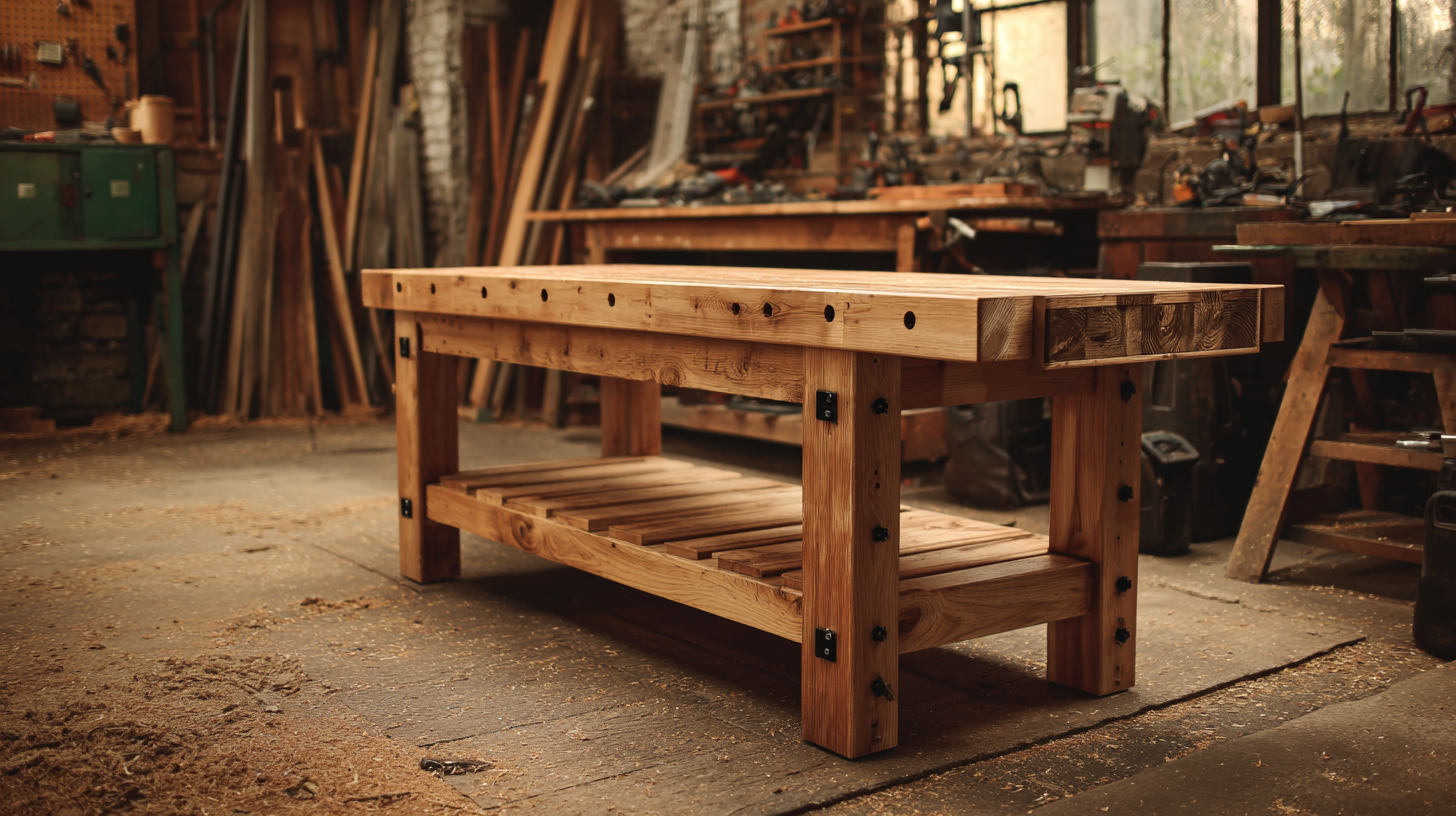 Hardwood, such as maple or beech, provides a sturdy surface that can withstand significant wear and tear. Its natural resilience and aesthetic appeal make it a favorite among craftsmen. On the other hand, metal workbenches, often made from steel, are prized for their exceptional strength and longevity. They can handle heavy loads and are resistant to moisture, making them ideal for both indoor and outdoor settings.
Hardwood, such as maple or beech, provides a sturdy surface that can withstand significant wear and tear. Its natural resilience and aesthetic appeal make it a favorite among craftsmen. On the other hand, metal workbenches, often made from steel, are prized for their exceptional strength and longevity. They can handle heavy loads and are resistant to moisture, making them ideal for both indoor and outdoor settings.
Plywood is another option that combines affordability with functionality. While it may not be as durable as hardwood or metal, it offers good weight capacity and can be easily customized for specific tasks. Composite materials provide a lightweight option that often includes various fibers to improve durability and resistance to damage. Lastly, laminate surfaces are easy to clean, stain-resistant, and can mimic the look of wood or metal without the associated cost.
Each material presents its own set of benefits, allowing users to choose the best option for their specific heavy-duty project needs.
Essential Tools to Enhance Your Heavy-Duty Workbench Setup
When it comes to heavy-duty projects, having the right tools on your workbench is essential for maximizing efficiency and ensuring quality outcomes. Selecting essential tools for your heavy-duty workbench can significantly enhance your productivity and overall work experience. Heavy-duty projects often demand robust tools that can withstand the rigors of intense use. Consider investing in high-quality vises, clamps, and jigs to secure your materials effectively. This not only ensures precision in your work but also enhances safety by minimizing risks during heavy operations.
**Tips:** Always organize your tools within easy reach to streamline your workflow. Using drawer systems or pegboards can help keep your workspace tidy and minimize the time spent searching for tools. Additionally, integrating power supplies and extension cords at your workbench can eliminate clutter and prevent accidents, allowing you to focus entirely on your tasks.
Moreover, don’t overlook the importance of a sturdy and spacious work surface. A thick, heavy-duty workbench made from solid wood or metal can provide the necessary support for heavy materials. Consider adding accessories such as a tool shelf or storage bins to keep your essential tools organized. This arrangement not only saves space but also allows for quick access to your tools, further boosting your efficiency during heavy-duty projects.
Maximize Efficiency: Heavy-Duty Workbench Setup Analysis
Maximizing Space: 7 Design Tips for Efficient Workshop Layouts
When designing a workshop layout for heavy-duty projects, maximizing space and efficiency is paramount. Recent studies indicate that a well-planned workshop can increase productivity by as much as 20-30%. To achieve this, it’s essential to consider flexible furniture solutions that adapt to varying project needs. For instance, transforming workbenches that can be adjusted in height or size allow for better ergonomics and can accommodate a broader range of tasks without sacrificing floor space.
Incorporating clever storage solutions is another vital component of an efficient workshop. Utilizing vertical space through wall-mounted shelves and pegboards can dramatically improve organization and accessibility. A recent survey indicated that workshops with optimized storage see a reduction in clutter-related time loss, leading to smoother workflows. Additionally, mobile storage units can help maintain flexibility in your work area, allowing for seamless transitions between different project zones. By focusing on these design strategies, workshop owners can create a productive environment that meets the demands of heavy-duty projects while also easing the space constraints that often characterize traditional workshops.
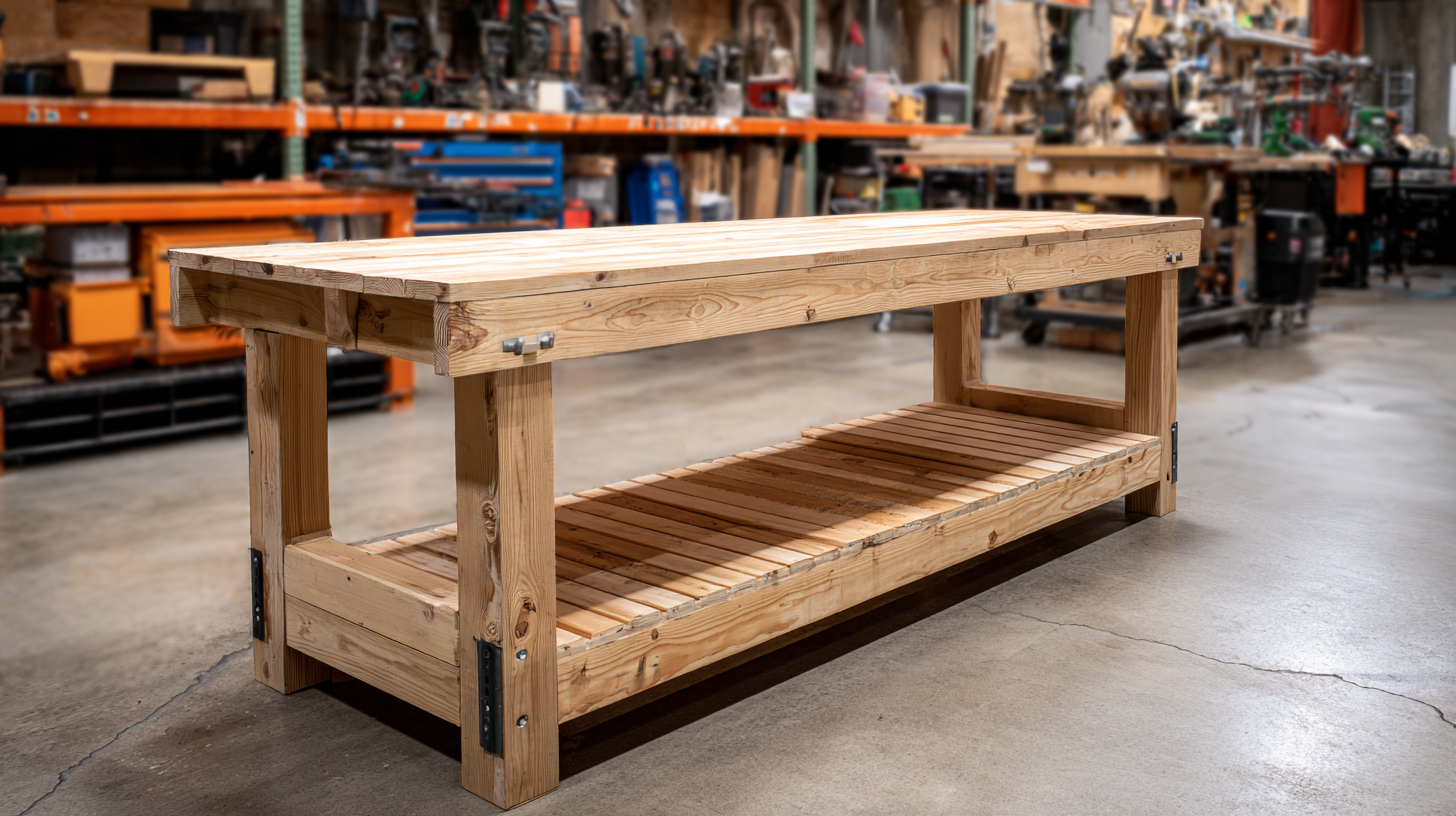
Best Practices for Maintaining Your Workshop Bench for Longevity
Maintaining your workshop bench is crucial for ensuring its longevity and your productivity. According to a report by the Woodworking Machinery Industry Association, regular maintenance can extend the lifespan of heavy-duty workbenches by up to 40%. This statistic highlights the importance of routine care and attention. Simple practices such as keeping the surface clean, checking for structural integrity, and regularly applying protective finishes can significantly enhance the durability of your investment.
Tip: To prevent wear and tear, always clean the surface after use. A mixture of mild soap and water can effectively remove sawdust, grease, and other residues that can accumulate over time.
Additionally, storing tools properly reduces the chances of scratches and dents on the workbench surface. Implementing a designated tool organization system not only helps maintain your bench's appearance but also improves your workflow efficiency. Research indicates that organized workshop environments can boost productivity by as much as 25%.
Tip: Consider using drawer inserts or pegboards to keep tools off the workbench and minimize clutter. This not only protects the bench but also ensures that you have easy access to your essential tools.
Related Posts
-
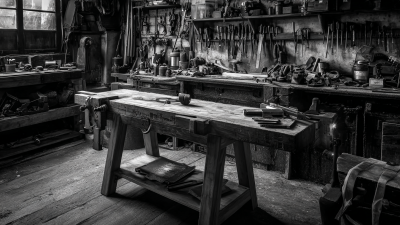
Ultimate Guide to Choosing the Best Workshop Benches for Your Business Needs
-
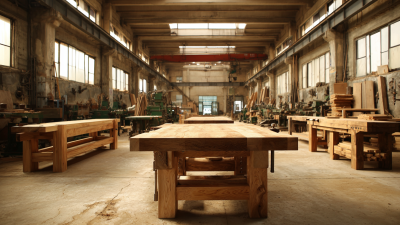
Unveiling the Finest Workshop Benches from Premier Chinese Manufacturers
-

Global Reach of China’s Elite Cabinet Workbench: A Synthesis of Quality and Innovation
-

7 Best Work Table Designs to Transform Your Workspace
-
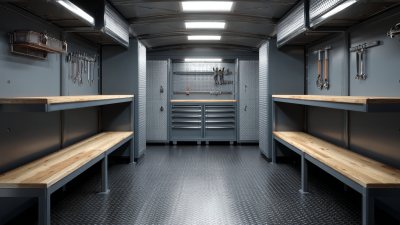
7 Reasons Why Choosing the Best Garage Bench Boosts Your Productivity by 30 Percent
-
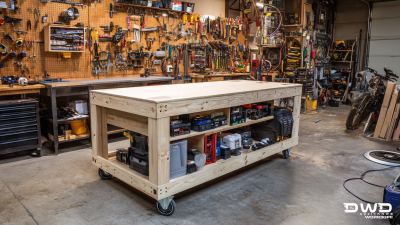
What Makes the Best Rolling Workbench Essential for Every Workshop
Footer
Resource Center
Contact Us
1901 West Main Street
Washington, MO 63090
Main Directory: 1-800-227-4873
Email: sale@pangcofurniture.com
Affiliations


